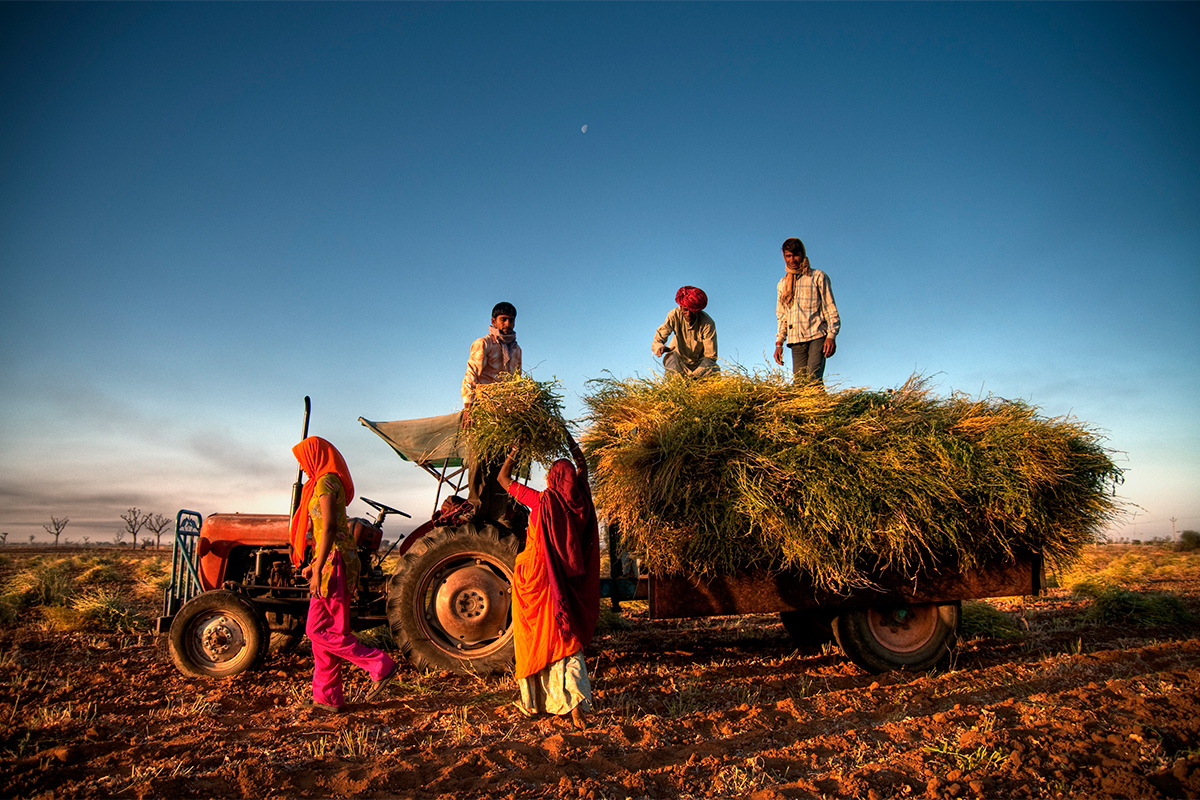Deals in farm goods via govt’s e-NAM platform touch Rs 3.79 lakh crore
As on October 31, as many as 1,389 mandis of 23 states and 4 Union Territories (UTs) have been integrated with e-NAM platform.
The government is keen to promote traditional varities of agriculture and horticulture through various schemes, such as NMNF, Farmers’ Producer Organizations (FPOs), Seed Development programmes and NFSM.

(Representational image: iStock)
The government is keen to promote traditional varities of agriculture and horticulture through various schemes, such as NMNF, Farmers’ Producer Organizations (FPOs), Seed Development programmes and NFSM.
The Union Secretary of the Ministry of Agriculture & Farmers’ Welfare Dr. Devesh Chaturvedi emphasised the need to promote traditional varieties of agriculture and horticulture.
Advertisement
Describing the importance of traditional varieties, he said it has unique traits such as better taste, aroma, colour, cooking quality, and nutritional richness etc. He suggested that these varieties should be grown in clusters and marketed for high price realization as there are buyers who love such traits; also quoted some examples.
Advertisement
The minister was addressing a gathering of the Multi-Stakeholder Convention on “RevivingAgro-Biodiversity in Rainfed Areas through Traditional Varieties for Climate-Resilient Agriculture” here on Thursday.
Dr. Faiz Ahmed Kidwai stated that the National Rainfed Areas Authority (NRAA) was established to support rainfed areas by analyzing investment types by different states and schemes. The aim is to motivate states to invest more in these areas, ensuring that the amount of investment is less compared to their requirements and
vulnerability.
Various experts, including Dr. K S Varaprasad, former director, ICAR-IIOR reinforced the need of recognizing the Traditional varieties and around 50% area is rainfed in the country, where farmers met their seed requirement around 60% from informal seed systems. Released varieties and Traditional varieties can co-exist to benefit the farmers. Dr. Varaprasad and Gyanendra Singh, Director, ICAR-NBPGR, discussed the importance of in-situ conservation and urged for greater
support from government policies for the preservation through use of these varieties.
Champion farmers’, seed saviors and state representatives from ten states including Tamil Nadu and Odisha, displayed the indigenous seeds and shared their success and failure stories in conserving traditional varieties. The panel discussions emphasized the importance of formalisation of community-managed seed systems, the need for government support in infrastructure and MSP, and the involvement of grassroots organizations in seed conservation efforts.
The workshop aimed to stimulate discussions and policy discourse on rainfed areas, as traditional varieties are disappearing while agriculture becomes more vulnerable in the context of climate change.All stakeholders agree on the importance of conserving Traditional varieties through use. There are examples from Tamil Nadu, West Bengal, and Odisha on how states are supporting in reviving and mainstreaming diversity.
An action plan and recommendations should be developed to submit to the Ministry of Agriculture and Farmers Welfare. Linking traditional varieties to the market and promoting them in natural farming schemes are also possible. We can build on the strategies adopted for promotion of millets by the GoI. NRAA will continue its consultative process in this agenda.
With 61 per cent of India’s farmers relying on rainfed agriculture across 50 per cent of the country’s land, the Workshop highlighted the crucial role of traditional varieties in sustaining these systems. Rainfed areas, characterized by challenging conditions like low soil fertility and climate variability, depend heavily on informal seed systems—farmer-to-farmer exchanges and community-managed seed banks. Nearly half of India’s seed requirements are met through such systems, underscoring the need for their conservation and promotion.
Advertisement